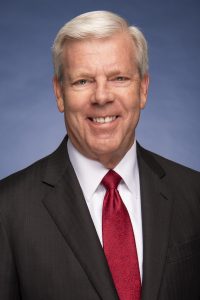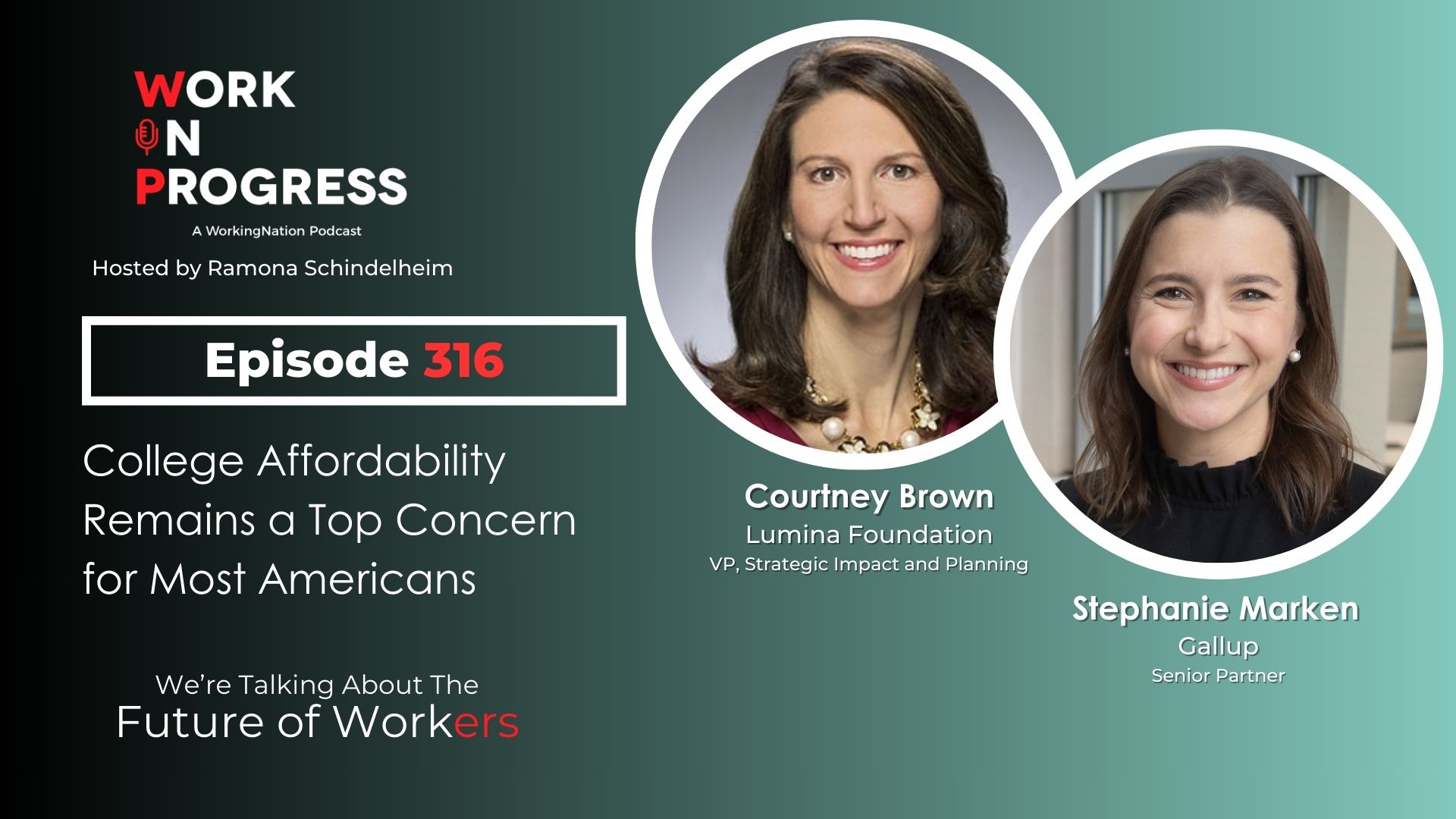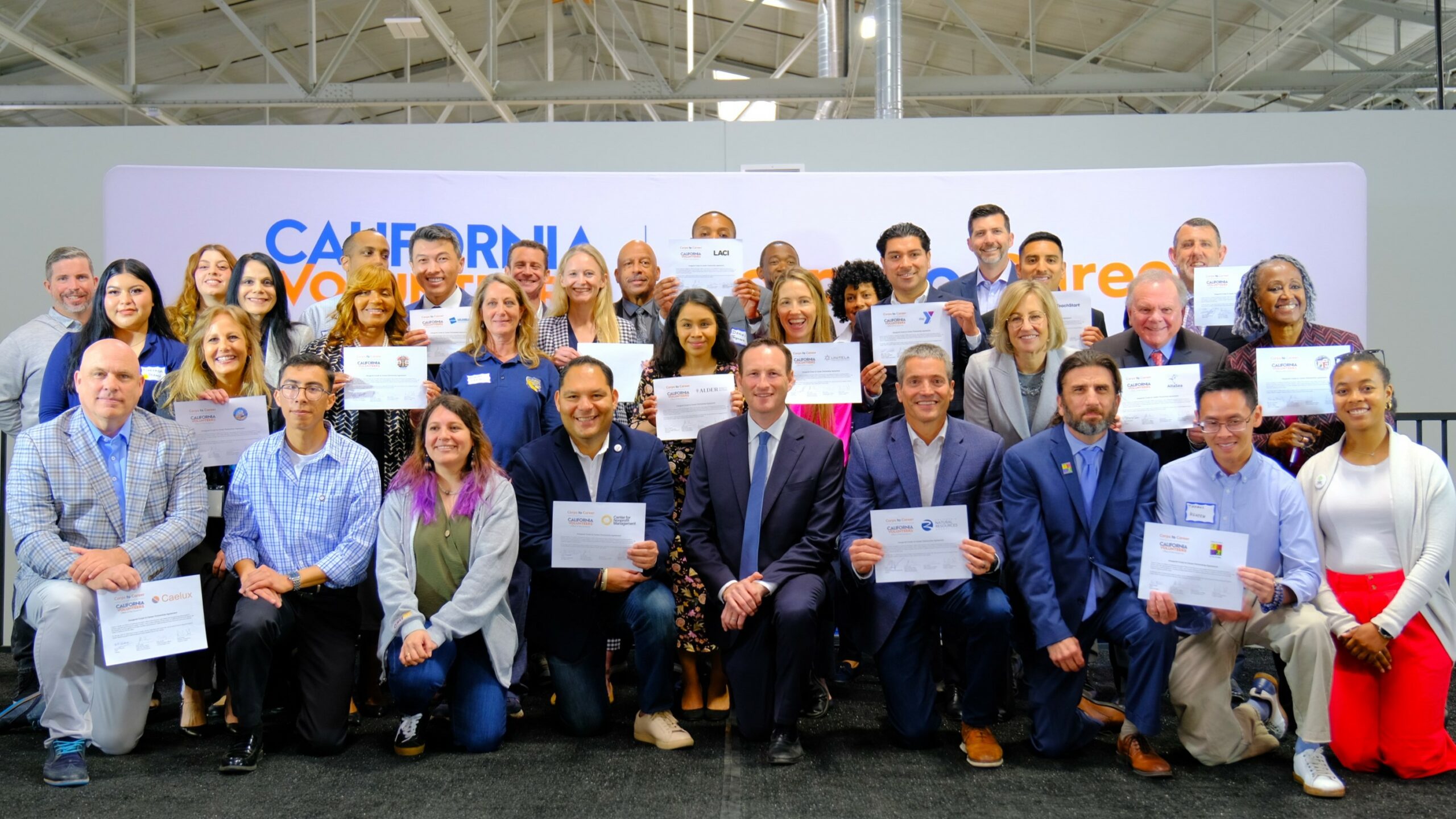Seeing the sharp demand for digital skills, accelerated by the COVID-19 health and economic crisis, nonprofit Generation USA partnered with Verizon last year with a goal of preparing 500,000 people for jobs of the future by 2030.
The Verizon Reskilling Program is a $44 million investment and part of the Citizen Verizon initiative—a three-pillar plan supporting digital inclusion, climate protection, and upskilling/reskilling efforts.
WorkingNation checks in with Generation USA to discuss that collaboration and others designed to ensure no group is left behind in the recovery.
Scaling Efforts to Create More Opportunity
Before the pandemic, Generation USA had been training about 1,000 people a year, but CEO Sean Segal says that wasn’t enough.

“Generation’s mission is upskilling and reskilling the most vulnerable populations in the United States. During the pandemic, we really stepped back to consider what our role should be as the nation faced this unprecedented crisis,” Segal says.
“We knew that any economic recovery, when it came, would leave our populations out. So, we decided to focus on scaling our efforts.” That’s were Verizon comes in.
More than half of Generation’s students (80%) were unemployed or in gig work before beginning the program, and 70% self-identify as Black or Latinx.
The online program—Verizon Skill Forward Program—provides free resources with a focus on tech jobs including junior cloud practitioner, IT help desk technician, and digital marketing analyst. Each program takes approximately 10 to 12 weeks to complete.
Applications are now being accepted for those programs.
Generation USA Collaborations Expand Training Opportunities
Additionally, JFF, a nonprofit whose mission is to transform education and workforce systems, is collaborating with Generation USA. JFF is delivering the Generation training curricula to a pilot group of 9 colleges to expedite access to tech careers. JFF hopes to expand the program to 15 colleges next year.

“From a do-good standpoint of corporate social responsibility, it creates access and inclusion, providing gateways for people who haven’t been able to access learning, good jobs, social capital and all the things a lot of us enjoy,” says Kathy Mannes, JFF’s vice president of impact partnerships.
“It’s changing the paradigm around how colleges function; this is a gamechanger.”
One participating school is Dallas College whose goal is to serve an estimated 600 students in eight to 11 cohorts over the next 12 months. The school previously partnered with Generation to offer entry-level IT training to low-income 18- to 24-year-olds.

“Their model combination of workforce skills and job readiness delivered in an accelerated format pairs well with our integrated training and education pathways. This innovative model helps non-traditional learners obtain micro-credentials that allow them to jumpstart their careers and earn sustainable living wages,” says Joe May, Ed.D., Dallas College system chancellor.
“The added value of paid experiential learning through the student experience made it a more attractive alliance and a natural fit for career connected learners. Through this work, Dallas College is not only transforming one life, but generations of lives within our Dallas County community.”
Placement is Critical
Since 2017, Generation has had an 81% graduation rate with more than 4,000 participants completing their programs. In addition to the education and training, Generation’s programs include job placement.
“Placement is a huge part of our program,” Segal says. “Training doesn’t matter if you can’t get a job. Our graduates have already landed roles with Google, Infosys, Verizon, and Belle Fleur Technologies, to name a few.”
“We’re also partnering with a tech outsourcing firm, ConSol, that has committed to hiring 3,000 graduates this year. And we’re excited to partner with Multiverse to allow our graduates an apprenticeship opportunity.”
This type of structure, May says, helps fill the workforce pipeline and leads students to in-demand jobs.
“Collaboration is a vital component for innovation and must remain at the forefront of work by every industry,” he says. “This win-win scenario allows our students to receive hands-on experience that they might not have otherwise received. Our goal is to leverage partnerships such as these to tailor course curriculum and learning outcomes to best meet our students’ needs and those of our workforce.”











